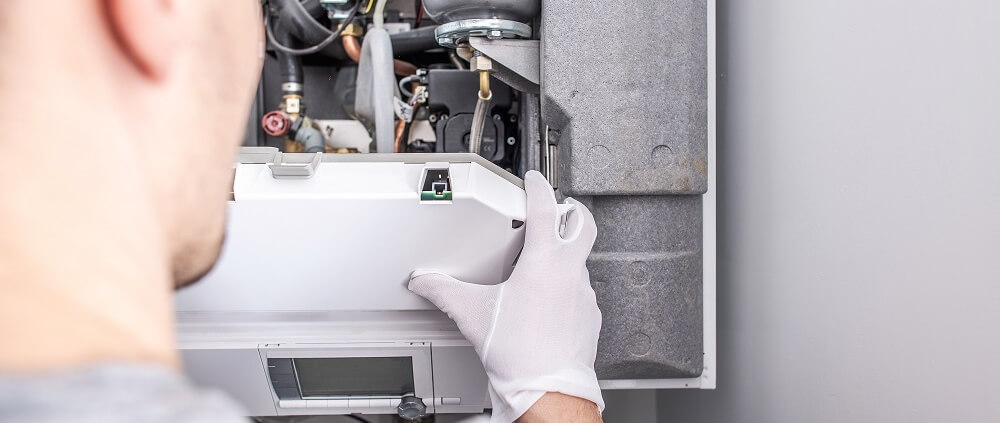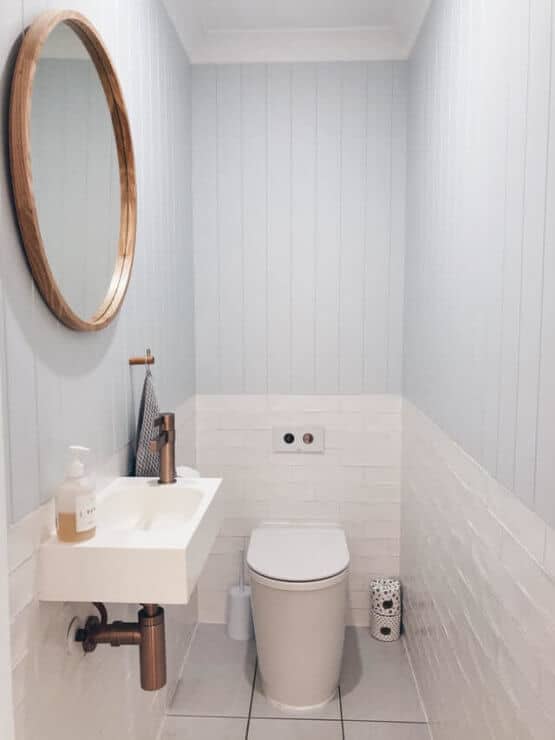Your house smells like gas but bave electric heating system?
The human sense of smell is a great response that evokes a strong and rapid reaction that allows us to interact with the environment. One of the stimulants we react to strongly is the unmistakable smell of gas. The gas odor frequently causes anxiety due to the connection it has with potential dangers.
Gas is made up of highly flammable and volatile liquid hydrocarbons from petroleum. The smell of gas is detected instantly because it is similar to that of rotten eggs or onion.
Houses that are electrically powered can sometimes give off the smell of gas as well. This means that the homeowner will have to run up and down to detect the source of the unpleasant odor, which might be quite difficult.
This article will examine the numerous factors that lead to this phenomenon, as well as outline possible solutions to the problem.
House Smells Like Gas But Have Electric Water Heater

- Your Furnace or Water Heater Has Bacteria
Bacteria thrive best in warm, dark, and moist conditions. Some appliances like the furnace or water heaters meet all of these conditions. Therefore, it is possible for bacteria to thrive and produce a sulfurous gas with a bad odor.
Thus your water heater might emit a bad odor. This happens especially if it has been accumulating bacteria for a long time. If you detect the odor when winter has just begun, there is a good possibility that the stench is coming from the furnace. [1]
Unfortunately, it can be difficult to prevent bacteria from entering your heating system once it has already been compromised. However, you can eliminate any microorganisms that might already be present by having a professional clean the water heater or furnace.
- Dirty or Clogged Sewage System
Another reason why you may be experiencing the smell of gas in your home could be the dirty sewers. Wastewater is one of the main sources of sulfur gas production. Clogged sewers can cause the gas produced to permeate into the house.
The sulfur gas is produced due to bacterial activity in the sewage pipes. Therefore, the odor will diffuse if there is a clog within your sewage line and you will be able to smell it throughout the house. [2]
Make sure to then thoroughly clean the sewers and sinks with a bleach and water solution.
It’s also likely that the sewage drain outside your home has a hole in it. When something like this occurs, the sulfurous odor may leak out of the pipes located beneath your building into your house.
Related: Drain Clogged With Hair
- Your Neighbor Has a Gas Leak
When a gas leak occurs in one unit of a shared building, the odor of the gas can travel through common ventilation systems, plumbing lines, or even shared walls and floors. These interconnecting pathways can act as conduits for gas odor to spread into nearby units.
As a result, the side of your house that shares a wall, floor, or ventilation duct with the neighbor may have a higher gas odor. When you smell gas, you must act quickly to guarantee the safety of both you and your neighbor.
Gas leaks are potentially hazardous conditions. If left unchecked, they can cause fires, explosions, or health problems [3]. Therefore, you should avoid using any open flames, electrical switches, or spark-generating devices if you detect gas. If there is a significant concentration of gas in the air, these activities have the potential to cause an explosion.
- Chemical Reactions and Off-Gassing
The occurrence of chemical reactions and off-gassing is a lesser-known but substantial factor that causes a gas-like smell in an electrically powered home. These reactions normally occur as a result of interaction between construction materials, household items, and environmental conditions that produce volatile organic compounds (VOCs) in the air [4].
VOCs are an example of a carbon compound that generally has a low boiling point, which causes it to evaporate at room temperature. When these molecules collect in the indoor environment, they can emit a certain irritating scent that is reminiscent of gas.
Newly constructed or renovated homes are especially vulnerable to greater amounts of off-gassing because of the recently installed materials. Fresh paint on walls, varnish on furniture, and new carpets, for example, can generate VOCs.
- Poor Ventilation and Indoor Air Quality
Inadequate ventilation can lead to stagnant air, therefore trapping odors. The odor may be coming from your surrounding environment. This will contribute to the perception of a gas-like smell. Proper airflow is essential to maintain indoor air quality [5].
You should try getting an air purifier or some scented room spray to cover up the stench of the gas if this is your problem. The use of a room spray is an effective, short-term solution.
However, you should continue your investigation into the source of the gas to ensure that it is eliminated once and for all.
Strategically placed air purifiers and efficient filtration systems can assist in removing particles and odors for a more comfortable living environment. Regular air exchange through natural or mechanical means is vital to prevent the buildup of unpleasant odors.
- There is an Obstruction in the Garbage Chute.
If you live in an apartment that has a complex trash chute and there is a significant amount of garbage, it may start emitting gas-like odors. And if there is something unpleasant in that heap of garbage, the odor will definitely get into your house.
When it comes to garbage, you should be careful what you or your neighbors throw into the garbage container. If it’s something that produces a foul odor like bad eggs, it is likely that the smell will pervade your house. This is because as they sit in your garbage container, they might start to smell and render your home unbearable to live in.
Even if there isn’t anything smelly in the trash, it still has the potential to emit sulfurous gas as a result of decomposition. You should therefore investigate the situation to get rid of the unpleasant odor. [6]
Also, if garbage is only collected a few times a week, chances of an unpleasant odor being produced are high.
- Dried-out P-trap
Drain pipes play an important role in the complex plumbing system. They provide better drainage and prevent sewer stench from entering the residence. Under some conditions, the unmistakable foul odor associated with sewer leaks might surprisingly emanate from drainpipes.
A unique plumbing structure exists beneath sinks known as a P-trap. It is made out of a curved segment of drainpipe that stores a tiny amount of water. The curve retains water even when the fixture is not in use.
This curve is required for proper drainage while also reducing the entry of harmful sewage gases into your house. Water evaporates when the sink is not used for a long time. As a result, sewage smells escape into enter the home.
In such instances, the first thing people notice is a strong stench. Many older homes consist of basement sinks and plumbing that are no longer used by the owners. If the sewer scent is detected through this plumbing, it’s possible that you’re dealing with a dried-out P-trap.
Related: P Trap Lower Than The Drain Pipe
- Use of Bleach
Sometimes the smell of bleach can be extremely potent. When bleach is used in excess, it produces a strong pungent smell reminiscent a gas leak.
For instance, if someone just used bleach, the odor might be stronger in that area than others [7].
Find out if anyone has recently cleaned with bleach. If that’s the case, there is a good chance that that is what you are detecting. If that’s the case, you might have to be patient till the odor dissipates. Otherwise, you can spray some air freshener around the area to disguise the smell of bleach.
Related: Does Bleach Damage Toilet Bowls
- Burning Plastic
Burning plastic can sometimes have a smell that is quite similar to that of gas. If you’ve eliminated all other sources of smell, consider searching your home for any plastic that might be sitting on top of something hot.
It might be something as simple as a piece of plastic left on the stove while it’s being used. You might also have used a straightening iron but forgotten to turn it off.
In such an instance, the plastic cable might be touching the surface of the iron. Similarly, malfunctioning electrical components or overheating wires can emit burning odors that might be mistaken for gas [8].
- The issue is with the Drywall in Your Home
You should consider when the drywall in your house was put up, especially if you are in America. If it was put in between the years 2001 and 2009, there is a chance that it will leak sulfuric acid into your home.
The most popular application for this kind of drywall was as a hurricane defense measure in the southern part of the United States of America.
It is possible that the gas smell is emanating from the walls of the building if nothing else appears to be the source of the odor [9].
In that situation, you will want to switch out the drywall for something that is more modern and contains less harmful chemicals.
How to Address the Issue
If a gas leak is suspected, ensuring the safety of occupants is paramount. Evacuation from the premises and avoiding open flames or sparks are essential precautions.
Ventilation enhancement is the cornerstone of improving indoor air quality. Properly designed ventilation systems and strategic placement of air purifiers can effectively remove odors and maintain a fresh environment.
Choose air purifiers with activated carbon filters, which are particularly effective in eliminating odorous molecules. Additionally, consider reducing VOC emissions by opting for low-VOC household products and sustainable building materials for a healthier indoor atmosphere.
When faced with a persistent gas-like stench, one should contact an expert for advice. Certified electricians can inspect electrical systems and ensure they are functioning safely. HVAC technicians can assess ventilation systems and recommend improvements.
Related: Water Heater Smells Like Burning
Conclusion
A gas-like odor in an electrically powered home can be baffling and alarming. Homeowners, on the other hand, can confidently confront and resolve such situations if they have a thorough awareness of potential causes, identification procedures, and repair techniques.
In order to improve indoor air quality, homeowners should prioritize safety and make informed decisions. This will result in a living space that is not only pleasant and friendly but also free of the mystery of gas-like scents.
Proactive efforts are required to prevent future occurrences of gas-like odors. Inspections and maintenance of electrical systems and, possibly, moisture-prone regions on a regular basis is advised.
This can assist in identifying and addressing concerns before they escalate. Proper gas-line sealing and fast repairs are critical to preventing leaks.
Read Also: Hot Water Heater Smells Like Gas

Michael Davis is a heating & plumbing expert who currently works as independent contractor in SC. He also writes for Plumbertip.
For almost 10 years he worked on various plumbing tasks across South Carolina.



